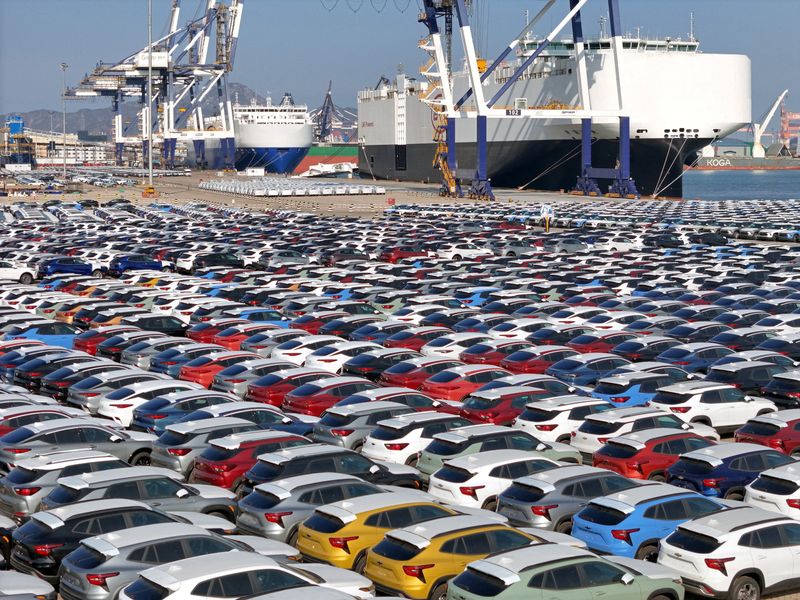By Joe Cash, Xiuhao Chen and Liz Lee
BEIJING (Reuters) – China on Thursday urged the United States to immediately cancel its latest tariffs and vowed countermeasures to safeguard its own interests, after President Donald Trump declared sweeping levies on all U.S. trading partners around the world.
The U.S. move disregards the balance of interests reached in multilateral trade negotiations over the years and the fact that it has long benefited greatly from international trade, China’s Commerce Ministry said in a statement.
“China firmly opposes this and will take countermeasures to safeguard its own rights and interests,” the ministry said, as the world’s largest economies look set to spiral deeper into a trade war that stands to upend global supply chains.
Trump on Wednesday announced China would be hit with a 34% tariff, on top of the 20% he previously imposed earlier this year, bringing the total new levies to 54% and close to the 60% figure he had threatened while on the campaign trail.
Chinese exporters, like those from other economies around the world, will face a 10% baseline tariff, as part of the new 34% levy, on almost all goods shipped to the world’s largest consumer economy from Saturday before the remaining, higher “reciprocal tariffs” take effect from April 9.
Trump also signed an executive order closing a trade loophole known as “de minimis” that has allowed low-value packages from China and Hong Kong to enter the U.S. duty free.
Trump had ordered the U.S. Trade Representative to determine whether China was living up to its commitments under the 2020 “Phase 1” U.S.-China trade agreement by April 1.
The deal required China to increase purchases of U.S. exports by $200 billion over a two-year period, but Beijing failed to meet its targets when the COVID-19 pandemic struck.
China bought $154 billion in U.S. goods in 2017, before the trade war began, Chinese customs data shows, and that figure rose to $164 billion last year.
WORLDWIDE TARIFFS
“Arguably, President Trump’s tariffs elsewhere will cause the most headaches,” said Ruby Osman, a China expert at the Tony Blair Institute for Global Change.
“Chinese firms have been rerouting trade through places like Vietnam and Mexico to avoid U.S. sanctions, but these markets are now being hit with significant tariffs of their own.”
“China+1” strategies caught on among Chinese exporters and multinational companies that had made the production powerhouse central to their supply chains during Trump’s first term.



